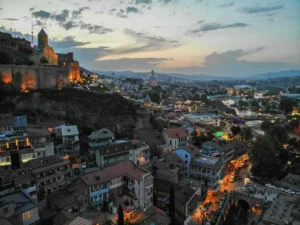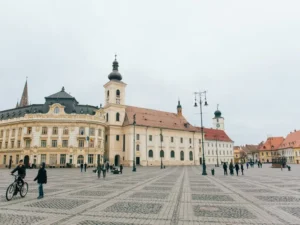Managing an inheritance across countries can be complex, especially when assets or heirs are located in different jurisdictions. To effectively handle this process, it is essential to understand the applicable law, gather the necessary documents, legalize and translate them, determine the competent notary, settle taxes in each country, and finalize the allocation and registration of assets. In this guide, we will cover all you need to know about how to manage an inheritance in Albania, including step-by-step instructions, document timelines, tax considerations, and FAQs.
If you are asking yourself “How to manage an inheritance in Albania?”, follow the steps below to ensure a smooth and legally compliant process.
Table of Contents
Steps
Applicable Law and Will Review
Determine the decedent’s habitual residence and apply the EU Regulation 650/2012 if applicable. Review the will, if any, and check professio iuris declarations.
Documentation
Collect all necessary certificates, including death certificates, proof of last wills, and inventory of assets. Ensure documents from foreign jurisdictions are apostilled and translated by a sworn translator.
Notary and Representation
Identify the competent notary in Albania or Spain. If managing remotely, arrange notarized powers of attorney to allow representation.
Fiscal Considerations
Calculate inheritance taxes in Albania (currently 15% for inheritances and donations, with exemptions where applicable) and Spain (ISD and plusvalía for real estate). Check for double taxation agreements.
Allocation and Registration
Execute the deed of acceptance and partition of the estate, and register assets in the relevant property and civil registries in Albania and Spain.
Documents and Deadlines
| Document | Issuing Authority | Location | Apostille/Translation | Estimated Time | Approx. Cost |
|---|---|---|---|---|---|
| Death Certificate | Civil Registry | Country of death | Yes, if foreign | 3–10 days | 10–30 € |
| Last Will / Testament | Notary / RGAUV | Albania / Spain | Apostille + translation if needed | 3–15 days | 20–60 € |
| Asset Inventory | Registries / Entities | Each country | According to document | 1–4 weeks | — |
| Apostille (Hague) | Competent Authority | Country of issuance | — | 1–10 days | 20–60 € |
| Sworn Translation | Certified Translator | — | — | 2–7 days | 0.08–0.15 €/word |
| Deed of Acceptance / Partition | Notary | Albania / Spain | According to annexes | 1–3 weeks | 300–1,200 € |
Taxes
- Albania: Inheritance and gift tax is 15%, with certain exemptions. Traditional practices may influence perceptions, but legal equality is guaranteed.
- Spain: ISD and municipal plusvalía apply for Spanish assets.
- Double Taxation: Verify agreements between Spain and Albania to avoid paying taxes twice.
References: Albanian Inheritance Law, EU Regulation 650/2012, Spanish Tax Agency (AEAT).
Registration and Allocation
- Execute the deed of acceptance/partition including the inventory and allocation of assets.
- Register all assets in the respective property and civil registries of Albania and Spain.
- For remote management, notarized powers of attorney and legalizations are accepted.
Frequently Asked Questions
Identify the applicable law (EU 650/2012), gather all certificates, legalize and translate documents, determine the competent notary, settle taxes in each country, and formalize asset allocation and registration. Follow the steps above and consult the table of documents and deadlines.
You will need death certificates, last wills, inventory of assets, apostille for foreign documents, and sworn translations where required. Proper documentation ensures legal compliance and avoids disputes.
Taxes must be paid in Spain (ISD and plusvalía) and in Albania according to local inheritance law. Always check double taxation agreements to avoid unnecessary payments.
Yes. With notarized powers of attorney and legalizations, most notaries in Albania and Spain allow representation, ensuring that the inheritance can be processed without personal presence.
Yes. While Albanian law ensures equal rights for men and women, traditional practices such as those influenced by the Kanun may still impact inheritance distribution in some rural areas.
Conclusion
If you are still wondering “How to manage an inheritance in Albania?”, it is highly recommended to seek professional assistance. Grupo Hereda offers expert guidance for handling international inheritances, coordinating all documentation, tax obligations, and registrations, and ensuring that your inheritance between Albania and Spain is managed efficiently, securely, and in full compliance with the law.
Legal References
Spanish Tax Agency – Inheritance Tax
Albanian Civil Code – Inheritance
Grupo Hereda
Grupo Hereda is a law firm specialized in international and national inheritances, with more than 25 years of experience handling complex succession cases.
We assist with inheritances in Estonia involving heirs in Spain, as well as inheritances in Spain with beneficiaries residing in Estonia or other countries.
Our legal team coordinates every phase of the process from obtaining certificates and apostilles to settling taxes and registering assets in the corresponding registries.
If you’re unsure how to manage an inheritance in Estonia Grupo Hereda guides you step by step, offering comprehensive legal advice and remote representation.
We also manage all types of international and national inheritances, ensuring legal security and time efficiency.
💬 Free Consultation:
If you are facing a complex inheritance or don’t know where to start, don’t give up your rights.
Contact us, and we will find a personalized solution for your case.
📞 Call us: (+34) 915 487 550
📧 Email: info@grupohereda.com
🌍 We operate throughout Spain and handle international inheritances across Europe and beyond the EU.






